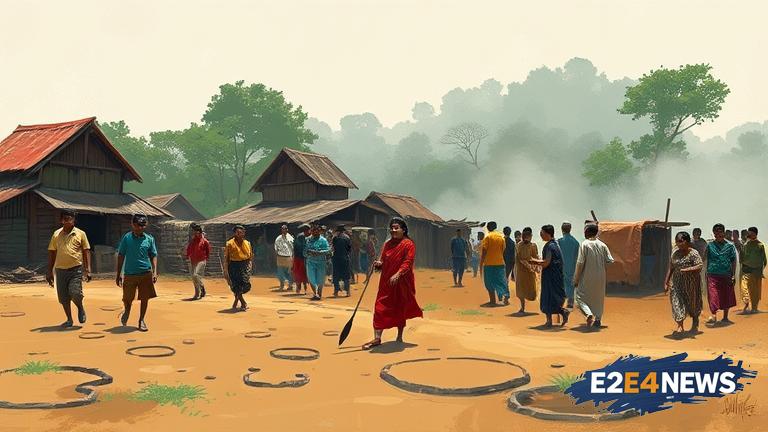The Rohingya crisis in Myanmar’s Rakhine state has been ongoing for years, with hundreds of thousands of Rohingya Muslims forced to flee their homes due to violence and persecution. The international community has been criticized for its slow response to the crisis, and many are now urging for immediate action to be taken. The situation in Rakhine state is dire, with reports of human rights abuses, including rape, torture, and murder, being committed by the Myanmar military. The Rohingya people have been denied citizenship and basic human rights, and are forced to live in squalid conditions in refugee camps. The international community must not wait until the last Rohingya leaves Rakhine before taking action, as this would be a catastrophic failure of humanitarian responsibility. The United Nations has called for an end to the violence and for the Myanmar government to allow humanitarian aid to reach those in need. However, the Myanmar government has refused to cooperate, and has instead blamed the Rohingya for the violence. The international community must take a strong stance against the Myanmar government and demand that they take immediate action to protect the Rohingya people. This includes allowing humanitarian aid to reach those in need, and taking steps to ensure the safe return of refugees. The Rohingya crisis is not just a humanitarian issue, but also a political one, and requires a comprehensive solution that addresses the root causes of the conflict. The international community must work together to find a solution that ensures the rights and dignity of the Rohingya people are respected. The European Union, the United States, and other countries have imposed sanctions on Myanmar, but more needs to be done to pressure the government to take action. The Rohingya people have been living in Rakhine state for generations, and have a right to remain there. However, the Myanmar government has denied them citizenship and has instead sought to erase their identity and culture. The international community must recognize the Rohingya people’s right to self-identification and ensure that their cultural and linguistic heritage is protected. The crisis in Rakhine state is not just a local issue, but has regional and global implications. The flow of refugees into neighboring countries has put a strain on resources and has the potential to destabilize the region. The international community must take a proactive approach to addressing the crisis, rather than just reacting to events as they unfold. This includes providing humanitarian aid, supporting the rights of the Rohingya people, and working towards a comprehensive solution to the conflict. The Rohingya crisis is a test of the international community’s commitment to human rights and humanitarian law. If we fail to act, we risk allowing a humanitarian catastrophe to unfold, and undermining the principles of human dignity and respect that underpin our global community. The time for action is now, and we must not wait until the last Rohingya leaves Rakhine before taking decisive action. The international community has a moral obligation to protect the Rohingya people and ensure that their rights are respected. We must work together to find a solution that is just, equitable, and sustainable, and that ensures the dignity and well-being of the Rohingya people. The Rohingya crisis is a complex issue that requires a comprehensive solution, and the international community must be prepared to take a long-term approach to addressing the crisis. This includes providing ongoing humanitarian aid, supporting the rights of the Rohingya people, and working towards a lasting solution to the conflict. The international community must also recognize the importance of accountability and justice in addressing the crisis, and must work to ensure that those responsible for human rights abuses are held accountable. The Rohingya crisis is a stark reminder of the importance of protecting human rights and preventing humanitarian crises. We must learn from the past and work towards a future where such crises are prevented, and where the rights and dignity of all people are respected.
